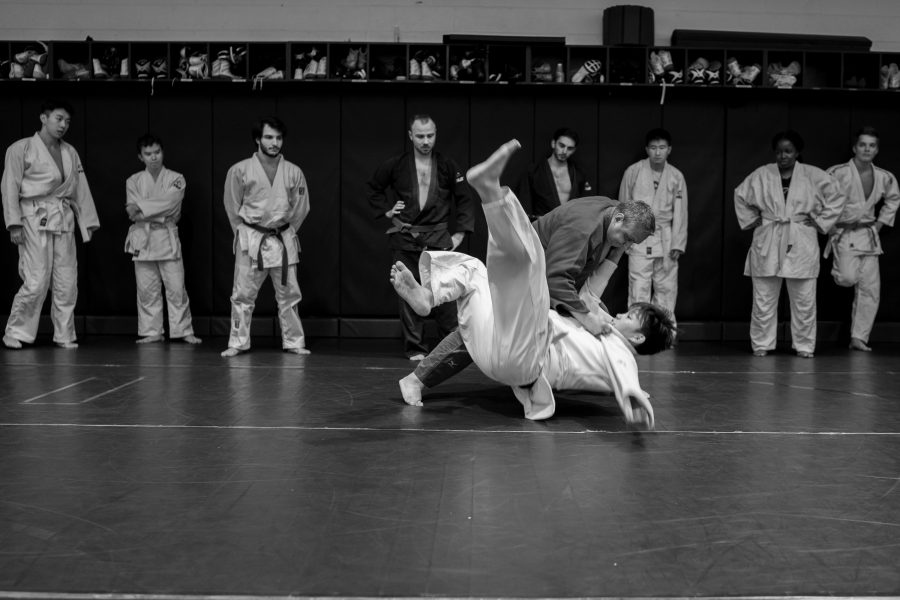Judo, a martial arts sport with Japanese roots that can be traced back to the late 1800s, has created a small but vibrant community here at NYU. Coached by Senseis Frank Colonnese and Devin Cohen, the judo team practices at Palladium Athletic Facility two nights a week and fights in a handful of competitions throughout the semester.
The competitions vary slightly, with some competitors coming from private clubs, while other matches are against solely collegiate teams. Altogether, the matches allow athletes of varying skill sets to compete at novice or advanced levels.
Judo can be easily misunderstood by outsiders. It gets grouped together with other martial arts disciplines such as karate or taekwondo. But in reality, it has more in common with wrestling.
“Judo is a mat sport or a grappling sport,” Colonnese said. “Throws, holds, arm locks — that’s how you win. No punching or kicking.”
Almost every member of the team discovered the sport in a different way, some starting in college and some having competed at younger levels. Stern junior Nomunbileg Sukhbold and sophomore Annette Kim each joined the team in their first year at NYU.
“I dabbled in other martial arts before,” Kim said. “But I think I like judo the best.”
Judo was originally introduced as a male-only event at the 1964 Olympics in Tokyo. The 2020 Olympics — also in Tokyo — will be the first time that the International Judo Federation will send an equal number of male and female competitors. Tandon sophomore Adeola Akin has been competing in the sport since she was 15. She commented on her experiences as a woman in a sport that has long been dominated by men.
“The first time I was like, ‘I’m the only woman here! I’m gonna get hurt,’” Akin said. “But honestly, most guys are pretty accommodating. I think once you build up your confidence and your strength, you get the equal footing to the other people. But it’s definitely more inclusive, and I’ve always appreciated that about the sport.”
The name judo consists of two Japanese characters: Ju, meaning gentle and Do, meaning way. A common misconception about judo is the idea that the sport is inherently violent and aggressive when really it is heavily based on technical skill.
“One thing people say is that softness beats hardness,” Sukhbold said. “Which means that you use the other person’s energy against them. And so it’s not using brute force to fight the person — it’s using as little power as possible. You’d think that most of the time the larger person would be dominant but as long as you have the technique, even the smallest person could throw someone twice as large as them.”
It is a sport largely grounded in respect, every step of the way. Even in practice, members of the team bow to their fellow athletes before running through drills and technique demonstrations.
“It’s respectful,” Akin said. “You’re not just like pummeling people. You pummel people and then you say thank you.”
Judo is a sport of balance. At NYU, this balance is applied not only to honing its skills, but also to forming bonds with one another. While the team consists of students from various schools, majors and skill levels, they all choose to spend their time together, competing in a discipline they love.
A version of this article appears in the Monday, Nov. 11, 2019, print edition. Email Maria Levine at [email protected]























































































































































